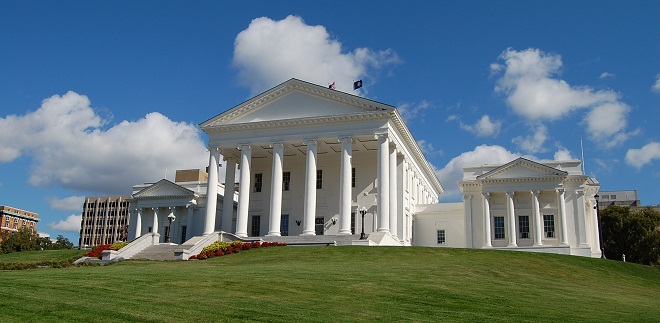

Although the General Assembly’s agenda was not bursting at the seams with early care and education issues this year, it still took a significant amount of attention. This year more legislators than ever before understood the value of early childhood, could repeat our talking points back and were genuinely interested in those points. Kudos to all who have spent time over the years educating their legislators! We hope that you will keep up that work. As we were successful in our attempts to restore funding to areas that had been cut and were facing deficits this year, we hope that next year we will be poised to increase investment in early childhood issues.
– Voices’ Priorities- We were pleased that funding was provided for our highest priority issues- home visiting and early intervention (Part C) services. The budget conferees negotiated to come closer to the Senate’s position on both items. The conferees restored over $1 million to home visiting ($600,000 to CHIP of Virginia/Parents as Teachers and $550,000 to Healthy Families). We were also pleased to see the conferees improve on the Governor’s funding for early intervention by adding an additional $3 million to provide $6 million next year and come much closer to closing the shortfall.
– $500,000 of the $750,000 previously cut from the Virginia Early Childhood Foundation was also restored. This will allow VECF to continue to fund regional Smart Beginnings Coalitions and to serve as an incubator to pilot new ideas within the early childhood field. One example of how VECF plans to pilot new ideas is their work on a kindergarten readiness assessment. VECF has formed an advisory Technical Team and selected a kindergarten readiness assessment tool to pilot. Teachers will be trained to use the assessment tool this spring.
Legislators also restored the remaining $250,000 previously cut from VECF’s budget, but awarded it to a new early childhood entity from the South Hampton Roads area, Elevate Early Education (E3). These funds are also to be used to pilot a kindergarten readiness assessment. With new attention being paid to kindergarten readiness assessments, we hope there will be opportunities for early childhood advocates to weigh in on their development and the approaches that will best fit our early childhood system. Voices will be following this issue and pushing for both readiness assessment pilots to include relevant stakeholder input.
– Also related to investment in early childhood in the long term, the Department of Education received some additional funding to help implement the Virginia Longitudinal Data System that can link data from preschool to college and the workforce to better track investments in education.
Most of the bills introduced this session around early care and education were focused on tying up loose ends and bringing regulations in line with practice. The bill most likely to impact the early childhood community is the approval of Sen. Hanger/Del. O’Bannon’ bill that clarifies the need to provide at least one credit reference/letter of credit when applying for a child care license. Other notable bills that passed and will be sent to the Governor’s desk include a bill that would not allow the Board of Social Services to create a regulation banning a child care from hiring private armed security and a bill that allows the Department of Social Services to access background check information. An attempt to clarify language around family day home zoning was laid on the table, but may resurface again.
Read More Blog Posts